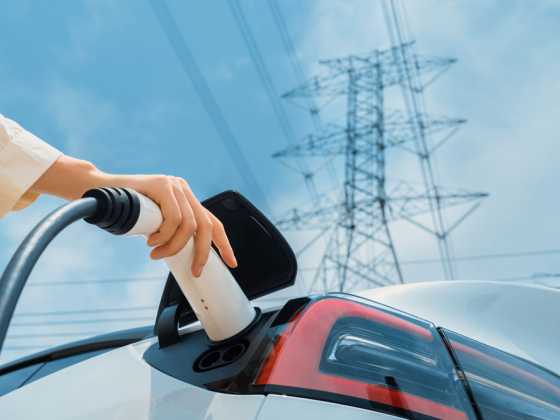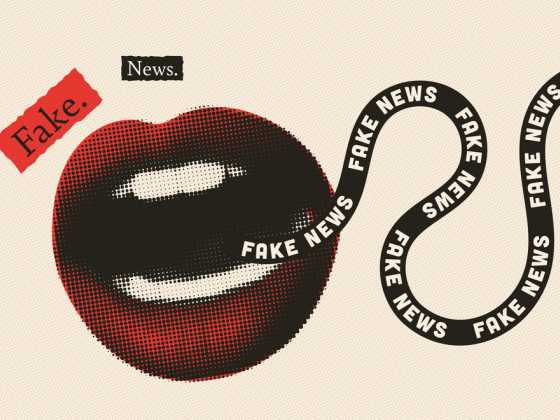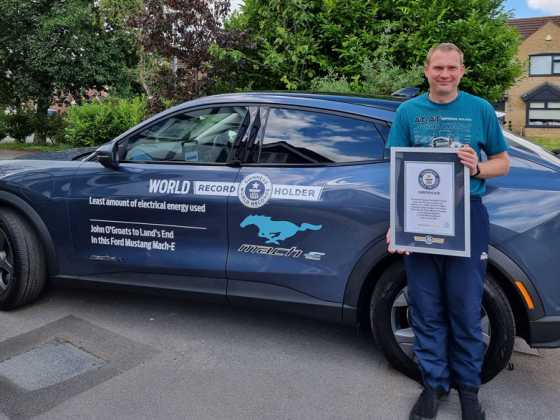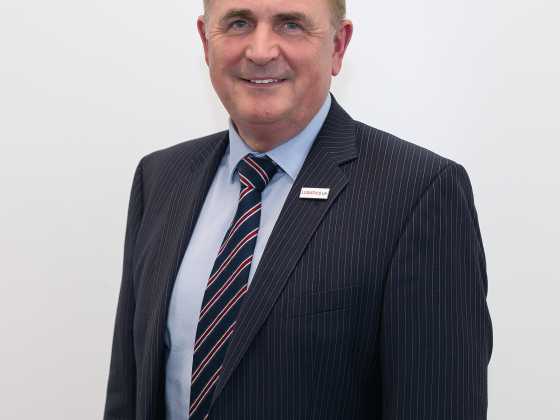A vision for future mobility
With a year-on-year rise in corporate sales and an armful of fleet awards, BMW Group’s presence in the fleet market is going from strength to strength. We talk to BMW Group's Stephen Chater about how this success is achieved
 Within BMW Group’s trophy cabinet sits numerous accolades such as GreenFleet’s own Fleet Car Manufacturer of the Year Award and the Industry Supplier Award from the Energy Saving Trust’s Fleet Hero Awards. These awards are testament to the manufacturer’s strength within the fleet and business car segment. So what’s the strategy behind this great achievement?
Within BMW Group’s trophy cabinet sits numerous accolades such as GreenFleet’s own Fleet Car Manufacturer of the Year Award and the Industry Supplier Award from the Energy Saving Trust’s Fleet Hero Awards. These awards are testament to the manufacturer’s strength within the fleet and business car segment. So what’s the strategy behind this great achievement?
“During these challenging economic times, businesses look for a product that’s safe and reliable, that offers better whole-life costs to reduce fleet and tax expenditure and that helps to meet carbon reduction targets,” explains Stephen Chater, BMW Group’s corporate operations manager. “But our customers still want a product that is desirable and that performs strongly. That sums up BMW Group vehicles – we create efficient products but we don’t compromise driving dynamics – that is why there is such strong demand for BMW and MINI products in the market.”
SOMETHING TO SHOUT ABOUT
BMW Group’s ability to create super utra-low emission vehicles whilst still offering premium, high performance cars is epitomised by the BMW 320d EfficientDynamics Saloon. This groundbreaking 163hp, 137mph model emits just 109 g/km of CO2 and achieves a remarkable 68.9 mpg on a combined cycle.
But has BMW Group reached emission levels as low as it can with internal combustion engines? No, says Chater: “Since its launch, EfficientDynamics has been at the heart of our emission reduction strategy and it will remain there for the foreseeable future. BMW’s emissions have been reduced by almost a third between 1995 and 2009 and that trend will continue.
“35 per cent of the existing BMW and MINI fleet and business orders currently account for models with less than 121 g/km CO2 with only eight per cent above 160g/km. That trend of emission reduction will continue on the internal combustion engines; MINI has already broken the 100g/km barrier with the Cooper D and further improvements across the entire BMW and MINI range should be expected. EfficientDynamics is unique in that it appears across the BMW range and is completely free of charge.”
ALTERNATIVE FUELS
But that’s not to say that BMW Group is not embracing alternatively-fueled vehicles such as electric and hybrids – far from it. Through BMW’s newly announced sub-brand BMW i, the manufacturer will be creating visionary cars and services, using inspiring design and technology, to develop an entirely new concept of premium mobility.
But they won’t be going in blind. BMW Group has done extensive research into the needs and concerns of the public when it comes to electric mobility. Last year around 600 electric MINIs, dubbed the MINI E, were trialed throughout the UK, Germany and the US by consumers and businesses in every day life in order to gain real-life feedback.
The second phase of the trial will begin this year in the form of a four-seater electric coupe called the BMW ActiveE which will be used to test other facets such as infrastructure, renewable energy and market potential.
Following these two trials, BMW Group will learn from the feedback to develop and perfect the BMW i3 and BMW i8 – the first offerings under the BMW i umbrella, due for launch in autumn 2013.
Formerly known as the Mega City Vehicle, the BMW i3 will be fully electric and will incorporate a new vehicle LifeDrive architecture. The BMW i8 will be a plug-in hybrid vehicle which provides both the efficiency of an electric vehicle, with impressive fuel efficiency and sports car performance.
What’s interesting is that both cars will be designed to accommodate their respective alternative drive systems – rather than trying to put electric components into a traditional vehicle. “We will use lightweight carbon fibre and aluminium to offset practically all of the extra weight added by the batteries. Not only will this significantly increase the range, but it will make the car more agile for superior driving dynamics and will offer more flexibility when shaping the interior space,” Chater explained.
THE CONNECTED CAR
Not stopping there, BMW i will incorporate an array of products and services to facilitate and enhance seamless mobility.
“If people have a vehicle that has restrictions on range and drive time then you can offer reassurances by connecting the driver with the outside world. Via smart phone based applications, we can give drivers vital information, such as where the nearest charge point is, train times, car club locations, and so on. We’ve taken a more holistic approach which looks at how people are likely to get around in the future, it’s not just about vehicles” says Chater.
To achieve this, a venture capital company was founded in New York City called BMW i Ventures. Through building long-term partnerships, the company will invest in projects which aid mobility, the first of which is MyCityWay, a mobile application that will provide users with information on public transportation, parking availability, and local entertainment for over 40 cities.
"BMW Group’s strategy is to be the leading provider of premium products and premium services relating to individual mobility. But in the future when people think 'premium', we want them naturally to think 'sustainable' too," explains Chater.
The BMW Group has been named as the automotive industry’s Supersector leader for the sixth consecutive year, and is therefore the world’s most sustainable automobile manufacturer in the Dow Jones Sustainability index.
PEOPLE POWER
Not just focusing on products, BMW Group also invests significantly in its employees to ensure they are armed with the right skills specific for the fleet sector. The field force have been accredited by the Institute of Car Fleet Management (ICFM) and are encouraged to take on a consultative and advisory approach to help businesses maximise their fleet’s potential.
What also makes BMW Group stand out against the competition is its customer focus, a willingness to listen and its transparency when it comes to feedback. “Customers can now give star ratings which appear on dealerships websites – a first in the motor industry. We believe that our customers have a right to see the performance of their dealership,” explains Chater.
It is an exciting time for BMW Group with its inspirational new designs and holistic approach to future mobility. But the manufacturer also has its feet firmly on the ground: “We know that electric mobility is inevitable and has an exciting future but it is dependent on many factors: infrastructure, political support and consumer appetite, for example. When you look at the trends, it is likely that internal combustion engines will continue to grow until 2020-2025. Therefore we will continue to optimize the internal combustion engine in parallel with the development of new vehicle concepts and the electrification of powertrains. We will deliver the most aspirational and lowest-emission vehicles in the premium market,” concludes Chater.
And it is this energy to always strive to be better that will ensure BMW and MINI continues to shine amongst the competition.
For more information






